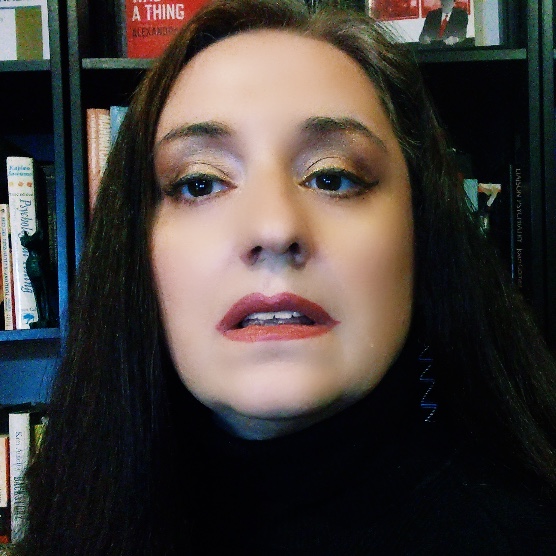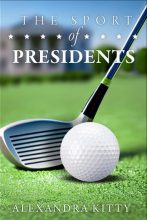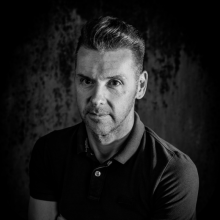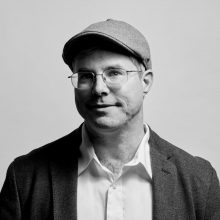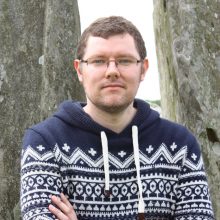The Sport of Presidents by Alexandra Kitty
What led you into writing?
I was writing stories and poetry ever since I could remember, but I always wanted to be a jury psychologist, but then became a journalist and continued writing articles, columns, and then books ever since.
How does a typical day look?
I research/interview in the morning, but I write late at night because I can focus and not be distracted. In between, I will do either do my art, teach, or, in 2022, I worked as a true crime researcher for Cineflix’s Homicide: Hours to Kill. I will also conduct experiments out in the real world to make sure my work has ecological validity. I always make time to read, talk to people, play with my pets, and live life.
What drew you to US presidents and golf?
When I am researching about current events, I like to create psychological profiles of people who impact the zeitgeist and/or ortgeist: what makes them tick, who they are as people, who they think and interpret the world around them, and then compare the current players with their predecessors to see patterns, shifts, and evolutions (or even devolutions). So I look at everything, including hobbies.
I noticed how much of a US president you could predict or understand based on their golf game. How they played told you a lot about how they interpreted their role in the White House. How they played, who got an invite out on the green away from the Oval House’s usual handlers, and how they used their pastime to cultivate their persona was fascinating. So I had enough notes to write a book.
How do you inspire and motivate yourself?
I have always been a you-focussed emotional person, meaning I focus on other people and gain energy from being helpful to others. I see a need that hasn’t been filled and I fill it with my books. For years, I was typecast as a journalism author, but there was a lot to say about the profession that wasn’t being said; so I didn’t mind, but then I saw other areas that needed gaps filled; so I switched to writing about historical nuggets, such as the Japanese art of kintsugi, the role Sherlock Holmes played in the theatre, hospital trains of the Second World War, how true crime television impacts our understanding of victims, and, of course, how golf gives us insight about the minds of US presidents.
The backbone of all my works is psychology: we don’t really focus on the workings of our minds and brains and how it influences how we perceive and interpret the world around us. We take too much for granted and at face value, and we have infinite worlds slumbering in front of us and we never actually see them. I see that disconnect; and then I do research and explore the topic in book form. That purposeful academic adventure is enough to both inspire and motivate me.
What sort of challenges affect non-fiction authors over regular fiction?
A fiction author can invent people, events, and even worlds based on their own desires and dreams; but a nonfiction author has to re-create and reconstruct elements from reality and be truthful and honest about it. You are confined in many ways, but it’s not just the only challenge. For me, I see a lot of nonfiction work (from news reports to documentaries to articles to books) take a uni-literate approach: they just use analytical literacy, and not emotional or primal literacy. There is no weighing what information means (emotional) or understanding how that piece of information gained through an analytical lens can help us survive or thrive (primal). So what happens is authors of nonfiction inadvertently ignore emotional and primal thinkers, and if they veer off this course, analytical thinkers get upset.
As an emotional thinker, my organic domain would normally be fiction, but I never played by rules, yet I get blowback from analytical people who don’t have the multiple lenses they need to see things. For example, I quote other people in my work and let them express their thoughts from their time and place; so that readers can get a feel how other people in another era saw their world, but analytical thinkers want uniformity of voice, not the reality of a mosaic. I will also present information with a certain emotional lens which reflects the mindset of the people I am writing about, from calm to anger. Emotional readers will understand this texture and appreciate being given emotional clues to immerse themselves in that groupthink to develop empathy, but analytical thinkers will misinterpret it and not understand it at all, getting upset that empirical information is being presented that way, erroneously believing those are my feelings, and not a reflection of something critical to understanding the subject that I am writing about.
So nonfiction authors who turn over the rules and break them will be misunderstood, especially those who know that without primal or emotional information, we don’t have a deep understanding of subjects. Fiction writers are organic creatives, meaning they work from the emotional, and they have an easier time having their emotionality accepted and even embraced. Nonfiction writers are expected to be just analytical, when they should be primal, emotional, and analytical to write a genuine work of nonfiction which reflects reality.
What’s your setup?
For nonfiction, the setup is the gateway to exploring uncharted territory to readers who don’t know the subject well. I explain the scope and focus and why the topic is important to know. I focus on all three core literacies: I use primal literacy by encouraging readers to hunt and gather for information in the book — don’t just read it, explore it. I use emotional literacy by doing a little “method writing”: if I a writing about angry people, I will invoke angry emotions so that readers feel the Geist that has been made toxic. Then I use analytical literacy to show objective facts. I will always begin with a note and/or preface for the reader to show them how to get the full impact of the book.
What lasting effects have your favourite authors had on your writing and style?
Sir Arthur Conan Doyle was all about the little things and the importance of simplicity. Richard Adams showed the importance of setting up a scene to look for important benchmarks (even in fiction, with rabbits as characters, he managed to show what would be important to his characters). John Kennedy Toole told stories in sections with multiple points of view so that the reader could weave a bigger picture and not just rely on one set of eyes.
What do you do for inspiration?
I am a kintsugi artist: so it is about taking pieces of the broken and fusing them together with gold to make something more valuable broken than it was when it was new.
What repeating themes do you find yourself pulling into your stories?
Truth, reality, perception, and interpretation: how these elements get processed in the mind and the brain, and how people deceive themselves, but also how they can align themselves with reality to find the truth.
How do you wind down?
I listen to Swedish punk!
What forms and processes do you prefer whilst researching?
Usually, I like to immerse myself by walking through whatever subject I am writing about. I worked as a journalist for years so that I could write books about journalism. I am a kintsugi artist so that I could write about that beautiful and therapeutic Japanese art form. I worked as a true crime researcher for a television show so that I could write about the ethics and structure of it. I went to Sherlockian plays to write about the role of Sherlock Holmes in the theatre. This is different than working in profession first and then writing about it: I deliberately go into a job so that I can conduct experiments, leave, process and analyze my experiences and then write about my findings.
But it’s not always possible to do that; so, I begin by talking to people involved to get a map. Then I read as much as I can about the subject, from old newspaper articles to academic experiments to trade publications, and of course, books. I look for ephemera or any unusual pieces of information, from old brochures to manuals to even letters or memos. I have used periodicals from intelligence publications to declassified CIA documents to flesh out a subject. Then I vet and verify what I have to refine the information I am working with to ensure it’s sound.
What are you reading at the moment?
Hunting Serial Predators by Grover Maurice Godwin
What’s the most useful advice you could give to an aspiring non-fiction author?
Break the rules, and don’t be motivated by wanting to tell people what to think or how to think about it. Be guided by omoiyari: it is a Japanese term of having altruistic feelings for others. Remember, you are communicating to people in times and places you will never be and you are the thread that connects people from the past, present, and future. Selfishness and hubris break that thread, but omoiyari keeps that thread strong, vibrant, flexible, and enduring.
👋 Hi! I run Author Interviews
As a new writer I found myself itching to contribute to a thriving, creative community, so I made Author Interviews and I've met loads of wonderful people in the process. You can buy my debut fantasy RINGLANDER: THE PATH AND THE WAY from Amazon.
